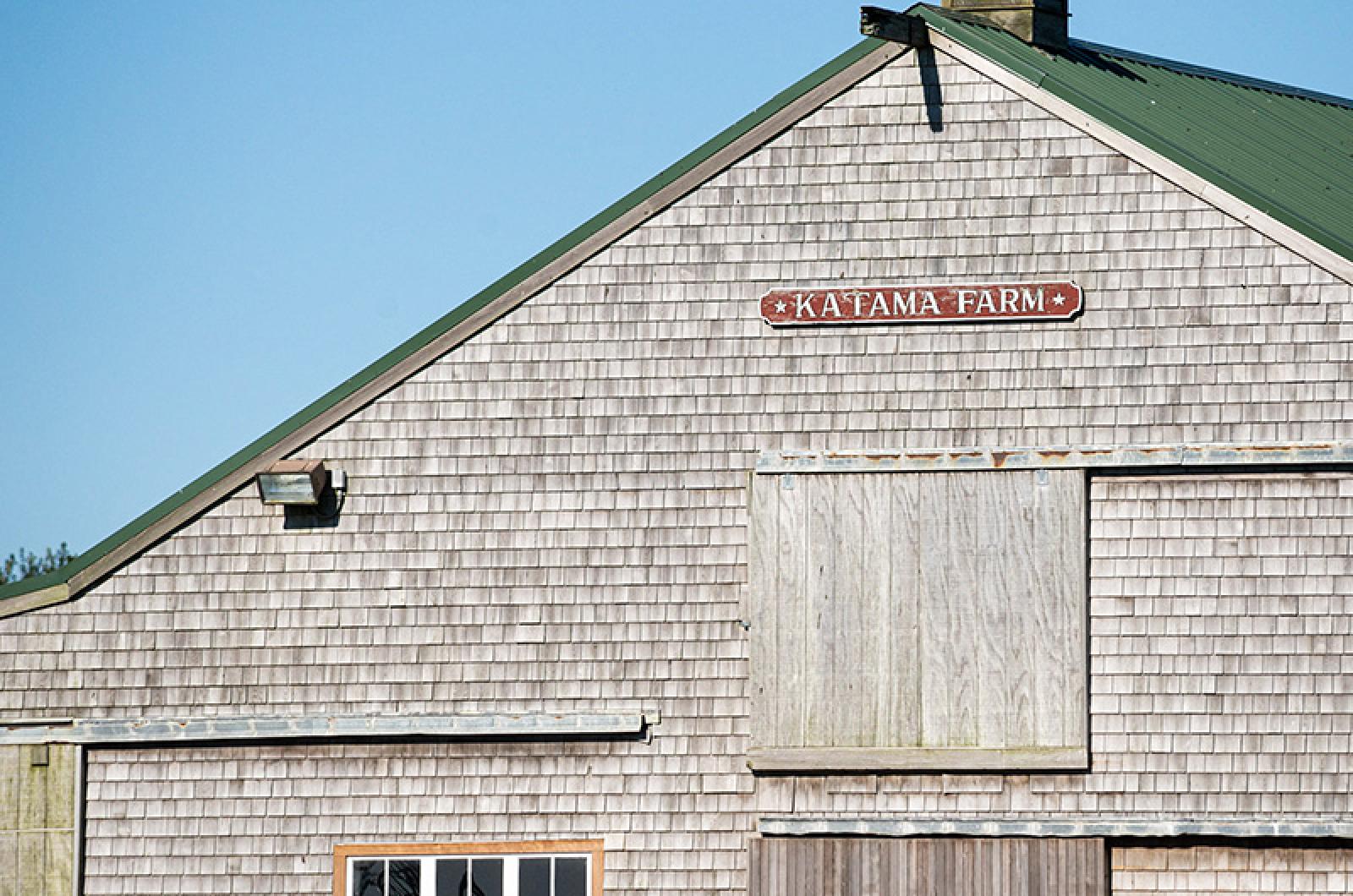In the latest shift since evicting the Trustees of Reservations from Katama Farm two months ago, the Edgartown conservation commission is now considering splitting the property’s educational and farming components to allow for more than one tenant on the site.
The change would potentially open the door for The Trustees to reapply as partial leaseholders, while the town separately allows a farmer to take over the agricultural operation at the farm.
Meanwhile, as the previous heat cools between the two sides, the conservation commission will extend the Trustees’ lease for another month. And at a meeting Friday the commission formed an advisory committee to discuss the farm’s future.
The Trustees now have until Nov. 15 to leave the farm, and in the interim will be expected to prepare farm fields for winter and take care of other matters to secure buildings and property.
A spokesman for the Trustees who attended the Friday meeting said if the town does decide to split the lease, the organization intends to apply to take over educational programming at the facility.
The conservation commission, which is the landlord for the historic, 180-acre town-owned farm, formally terminated its lease with the Trustees in August, after years of problems and a waning farm operation had reached a breaking point.
Originally set for Sept. 15, the move-out date has since been extended twice amid talks between the Trustees and the conservation commission. At the meeting Friday, the commission began discussing the next steps for the farm in broader terms, and agreed it would be wise to extend the lease for another month while those discussions take place.
“October 15 is around the corner,” said town counsel Ron Rappaport, who has participated in the discussions. “This has been a cooperative and friendly discussion. It’s to allow a reasonable time for exit, and in the meantime they will tend toward winterizing the property and securing and giving the town access.”
The conservation commission agreed unanimously.
“I think it’s a reasonable request,” said chairman Edward (Peter) Vincent.
The commission also decided to form an advisory committee to discuss, among other things, whether the town should issue two separate requests for proposals for the future management of the property. According to Mr. Rappaport, one RFP could focus on the farming and agricultural operation, while the other could focus on the education and camp components.
The committee will include a representative from the Katama Association, another neighbor representative, a member of the conservation commission, conservation agent Jane Varkonda, representatives from the Agricultural Society and the newly-formed Martha’s Vineyard Farm Bureau, as well as a consultant. An initial list of names included neighbors Steven Steinberg and Ken Michael, Dr. Rachel Gilker, an agriculturalist who has previously studied the farm, as a consultant, and conservation commission members Bob Avakian and Jeff Carlson.
Mr. Vincent said the committee will study the idea of two RFPs and come back with a recommendation for the commission.
Under the previous Katama Farm management plan, the Trustees were required to maintain both a working farm on the site and educational programming through The Farm Institute, which it acquired in 2014.
Trustees executive vice president Jocelyn Forbush said Friday the interest in applying was more than hypothetical.
“We are very interested in remaining as the education provider, really continuing the legacy of TFI [The Farm Institute], which has been so important for Edgartown and beyond,” Ms. Forbush said. “Just wanted to make it known that we do have that intent if the opportunity to respond is there.”
Others who attended the meeting spoke in support of the Trustees continuing the educational programming, including Banker White and Anna Fitch, both parents of campers.
“We really hope that the summer education programs continue,” Ms. Fitch said. “They’ve been just a huge part of our lives. We felt like The Trustees were doing a great job with that.”
Island Grown Initiative executive director Rebecca Haag, who also attended the meeting, agreed that the Trustees do a great job with education and camps, and she asked about potential uses of the property’s commercial kitchen.
“If you’re going to go after an RFP anyway, is there any particular reason why The Trustees couldn’t stay on that property, in that building?” Ms. Haag asked. “And some of the rest of us who are doing education programs might not be able to use that facility over the winter?”
Jim Athearn, who owns Morning Glory Farm in Edgartown, expressed support for the divided RFP idea. Morning Glory, as well as Grey Barn in Chilmark, have both written letters to the conservation commission about use of the farm.
“I think you’re on the right track considering the two leases, one for education and one for farming. I think that might work better,” Mr. Athearn said. “We’re certainly very interested in what goes on there, and whether we might have a role some time.”






Comments (3)
Comments
Comment policy »